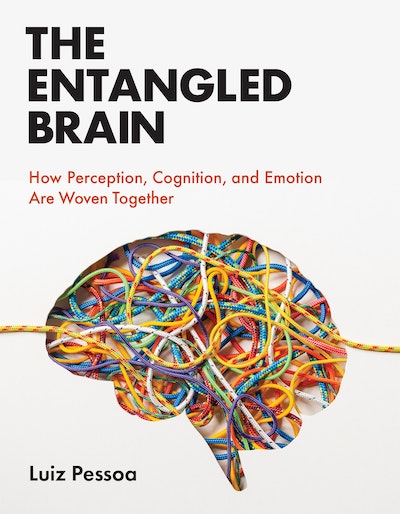A new vision of the brain as a fully integrated, networked organ.
Popular neuroscience accounts often focus on specific mind-brain aspects like addiction, cognition, or memory, but The Entangled Brain tackles a much bigger question: What kind of object is the brain? Neuroscientist Luiz Pessoa describes the brain as a highly networked, interconnected system that cannot be neatly decomposed into a set of independent parts. One can’t point to the brain and say, “This is where emotion happens” (or any other mental faculty). Pessoa argues that only by understanding how large-scale neural circuits combine multiple and diverse signals can we truly appreciate how the brain supports the mind.
Presenting the brain as an integrated organ and drawing on neuroscience, computation, mathematics, systems theory, and evolution, The Entangled Brain explains how brain functions result from cross-cutting brain processing, not the function of segregated areas. Parts of the brain work in a coordinated fashion across large-scale distributed networks in which disparate parts of the cortex and the subcortex work simultaneously to bring about behaviors. Pessoa intuitively explains the concepts needed to formalize this idea of the brain as a complex system and how to unleash powerful understandings built with “collective computations.”
